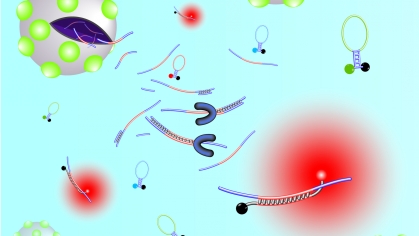First Look at Emerging Tobacco Industry Product Shows New Consumer Interest and Awareness

Rutgers study sheds light on consumer interest in “nicotine pouches”
Consumer interest and awareness in nicotine pouches – products that contain nicotine but have no tobacco and one of the newest industry products — is growing and they are most popular among younger smokers and those trying to quit, according to a Rutgers research study.
The study, the first independent analysis assessing consumer awareness and interest in nicotine pouches among U.S. smokers, appears in the journal Tobacco Control.
“Considering the outsize impact of tobacco industry products on health, we knew it would be essential to track these little-known products and come to understand them better,” said Mary Hrywna, an assistant professor at Rutgers Biomedical Health Sciences’ Center for Tobacco Studies. “With sales growing exponentially, it’s important to know who is using these products, how they are using them and what the potential may be for them to keep using them.”
The relatively new product works after users insert the pouches between their upper lip and gum, where the nicotine and taste are released. Sales of the often-flavored nicotine pouches, which became widely distributed between 2019 and 2020, are accelerating through brands such as the Altria subsidiary Helix innovations’ “On!” and Swedish Match’s “Zyn,” according to industry projections.
In the Rutgers study, researchers queried 1,018 smokers in the United States about their knowledge of nicotine pouches, whether they had tried them and if they planned to continue. The findings showed:
- About 29 percent of smokers were aware of nicotine pouches, nearly 6 percent had tried them and nearly 17 percent were interested in trying them soon.
- Smokers ages 18 to 44 were three times more likely to use nicotine pouches than older smokers.
- Smokers most interested in using pouches in the future were those with plans to quit smoking and those who had tried and failed to quit before.
The tobacco industry has conducted most studies on use and safety of nicotine pouches, Hrywna said, so more independent studies are needed to determine whether nicotine pouches are used to reduce harm and if limiting the use of e-cigarettes through government regulations is driving some smokers to use nicotine pouches.
“It was also notable to find that smokers in our study expressed much more interest in using these nicotine pouch products in the future than in using other traditional forms of smokeless tobacco, such as moist snuff and snus,” said study co-author Olivia Wackowski, an associate professor at the Rutgers Center for Tobacco Studies and Rutgers School of Public Health.
“This is a really timely issue,” said Hrywna, who also teaches in the Department of Health Behavior, Society & Policy in the Rutgers School of Public Health. “We have now learned from our study that interest will continue to grow in these products, so we will need more independent research on the product itself.”
The study was funded by the National Cancer Institute of the National Institutes of Health, and the U.S. Food and Drug Administration’s Center for Tobacco Products.



